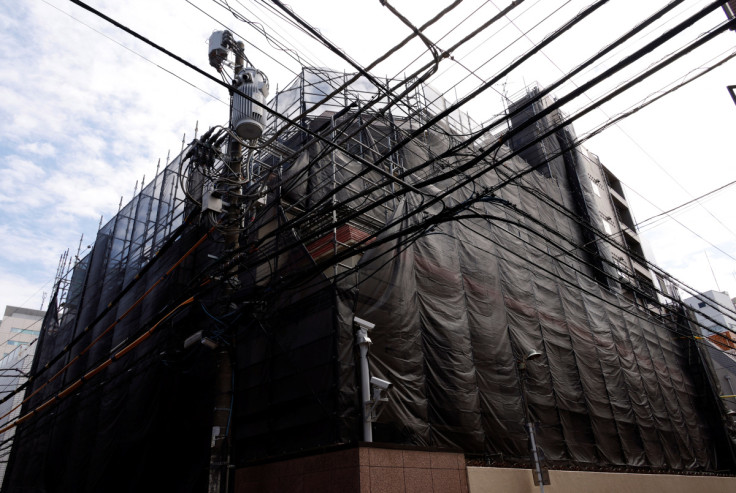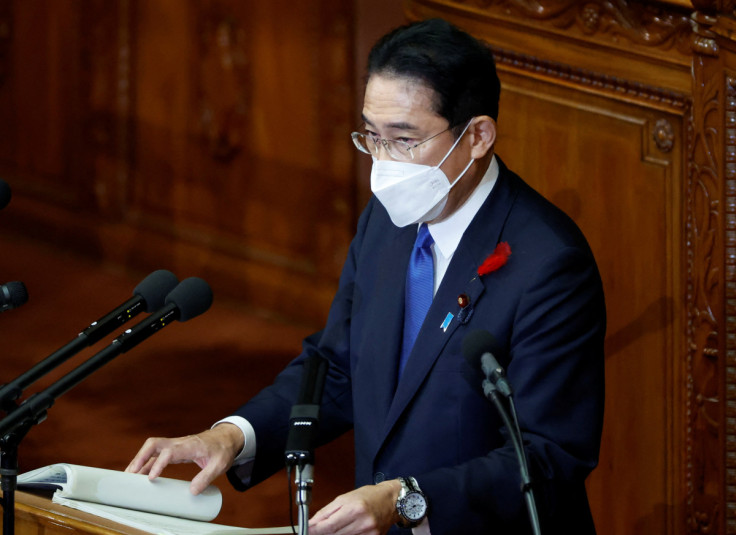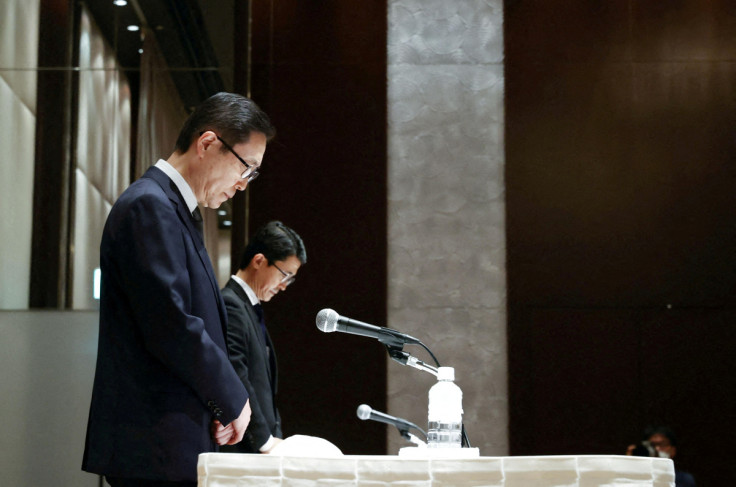Japan PM Orders Probe Into Unification Church Links To Ruling Party Members

Japanese Prime Minister Fumio Kishida ordered an investigation on Monday into the Unification Church after the assassination of former premier Shinzo Abe in July revealed close ties between it and ruling party lawmakers.
Support for Kishida's government has tumbled to its lowest since he took office a year ago on growing anger that members of his Liberal Democratic Party (LDP) did not fully disclose their ties to the church, founded in South Korea in the 1950s and famous for its mass weddings.
Abe was shot during an election rally and the suspected killer said his mother was bankrupted by the church, which critics call a cult that relies on dubious fund-raising, and blamed Abe for promoting it.
Kishida instructed the culture minister to prepare an investigation into the church under the Religious Corporations Act.
"I want to resolve issues related to the church," Kishida told parliament.
He apologised for the fact that many LDP members had ties to the church, which he said undermined public trust in the government, adding he was "taking seriously" allegations that the church left many followers impoverished, often with their families in turmoil.
The church built ties with politicians in Japan to attract followers and gain legitimacy, according to Hiroshi Yamaguchi, a lawyer who has worked on cases against it.
Politicians, in turn, gained access to church members for help with campaigns, he said.
Kishida said he had no personal relationship with the church, although nearly half of LDP lawmakers have disclosed connections since Abe's assassination.
The party says there is no organisational link to the church.
Kishida wants the investigation to start this year but he refrained from commenting on when it would end.
"The government will clarify the situation, offer relief measures to the victims and take steps to prevent a similar situation happening again," he said.
DISSOLUTION?
Kishida said the government had received more than 1,700 requests for help over financial trouble and mental health problems related to the church. He vowed to expand support for victims.
A government panel of experts said on Monday that the dissolution of the church should be an option investigators consider.
"We would swiftly consider requesting a court to issue a dissolution order if we find facts that warrant that," the education and culture minister, Keiko Nagaoka, told parliament.
The Unification Church was founded in 1954 by Sun Myung Moon, an anti-communist and self-declared messiah.
Critics have for years vilified his ministry as a dangerous cult and questioned its finances and how it indoctrinates its followers, often derided as "Moonies".
The church says it no longer accepts donations that cause financial hardship. It says it has been vilified and members have faced death threats since Abe's murder.
Moon died in 2012 and the church is now led by his widow, Hak Ja Han.


© Copyright Thomson Reuters 2025. All rights reserved.





















